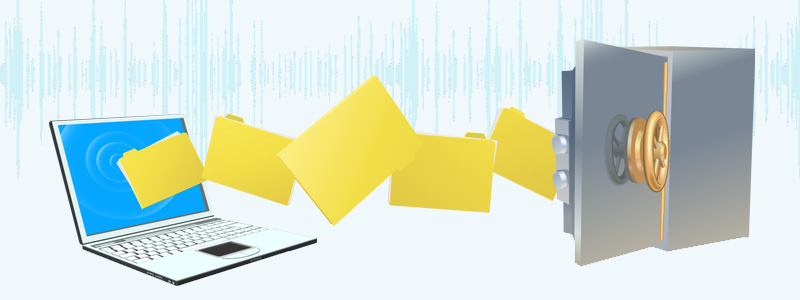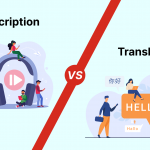
The transcription profession has seen significant technological advancement in the move from large reel-to-reel tapes to microcassette tapes, to the simplicity of digital audio and video files that can be uploaded or downloaded anywhere in the world.
Such ease of transfer, however, can be a mixed blessing. You can leverage competitive transcription rates on the other side of the world, but when you upload your file, do you really know where it is going? Do you realize that, above everything else, secure transcription is the most important deliverable on that journey?
Minimum Confidentiality
Maintaining the security of your transaction should be a minimum standard for any professional transcription service. This includes not only your client information but also the protection of any credit card information against identity theft if the transaction takes place online.
Website security measures should be clearly visible, and every effort should be made to reassure you as the client that your information is secure. Professional transcription services will offer clear evidence of data server protection through firewalls and antivirus programs, alongside multiple encryption levels to restrict and closely monitor access to your files at all times.
The True Value of Content
Highly confidential content, such as legal depositions, or focus group meetings for new products or services, require even greater security. For business or legal transcriptions, access is approved only for the assigned transcriptionist and quality control specialist.
Access logs are maintained in real-time, as are all data modifications as the file moves through the quality control process. Professional transcription services will also implement regular process audits to match individual transcriptionist access to the appropriate authorization code.
Post-Delivery Security
While delivery of an accurate transcription on deadline is typically a client’s primary concern, the fact that the transcription vendor is now left with a copy of your source files after the project has been delivered can give cause for concern. With increasingly sophisticated methods of data recovery, no file is ever really deleted, which can be a tremendous asset in the case of unintended deletions.
However, a promise from your vendor to automatically delete your file at the end of the project may not offer the reassurance you seek. If visions of discarded hard drives in recycling bins or unprotected USB drives left on office desks, are keeping you up at night, look for a clear commitment from your transcription vendor as to what will happen to your data files once the project has been completed. Professional transcription services will commit to secure archiving of all project data, typically on an automatic timeline of 30 days past project completion.
The selection criteria for transcription projects usually center on the accuracy, speed, and cost (and not always in that order). The security of your data often comes as an afterthought, but such an approach may place your confidential data in jeopardy. If you are looking at a transcription service that is offering prices that are significantly lower than the market average, consider how those lower prices are achieved.
If costs are being lowered just as aggressively in order to maintain reasonably healthy margins for the company, one of the easiest areas to lower costs is data security – software encryption, firewalls, and antivirus programs can be expensive. Are you willing to take that risk with your data to save a few dollars on your transcription project?







Share your thoughts